Looking for a “green” alternative to all of those nasty, chemical laden weed killers (aka – herbicides)? It is as easy as opening up your jar of coconut oil! Yep – coconut oil weed killer!
But first…
Why Should You Avoid Traditional Weed Killers?
Roundup and Spectracide are on every shelf of every store that sells garden products. Using these harsh chemicals to “control weeds” become the norm and by the early 90’s most everyone was spraying weeds with reckless abandon.
We now know that there are HUGE repercussions from using these types of weed killer products. As organic gardening and the demand for organic foods become more mainstream, people are starting to pay attention to the dangers of using chemical weed killers.
So what are the dangers of chemical weed killers?
- They easily absorb into our water supply and food supply. U.S. Geological Survey data shows that glyphosate is present in more than half of all surface waters, soil, and sediment. Aminomethylphosphonic acid (AMPA), its degradation product, is even more commonly detected, showing up in more than 80% of wastewater samples collected at municipal treatment plants. Various studies have shown that glyphosate shows up in anywhere from 30-90% of our food and drinking water.
- The chemicals used in traditional weed killers are known to cause cancer, kidney and liver damage, reproductive toxicity and endocrine disruption. They also impair the nervous system.
- Glyphosate is associated with rising rates of gluten intolerance.
- Research shows glyphosate can negatively affect the microbiome in the gut, which creates a pathway for diseases to develop.
- Studies in mice showed glyphosate promotes anxiety and depressive-like behaviors.
- The active chemicals used can interact with the “other” ingredients in weed killers making them even more dangerous.
- The chemicals are killing off our pollinators (bees and butterflies).
And the list goes on. These weed killing chemicals are just BAD NEWS!
Let’s get back to coconut oil and weeds…
What Makes Coconut Oil The Best Weed Killer?
Coconut oil contains an abundance of fatty acids. There are three types fatty acids (caprylic acid, pelargonic acid, and nonanoic acid) that specifically work as an herbicide. These fatty acids in coconut oil impair a plant’s ability to photosynthesize and eliminate waste through transpiration. (Transpiration is the process by which moisture is carried through plants from roots to small pores on the underside of leaves, where it changes to vapor and is released to the atmosphere. Transpiration is essentially evaporation of water from plant leaves.)
Another active component in coconut oil is sodium lauryl sulfate. This acts as a surfactant or soap-like substance which allows the coconut oil to really stick to the weed after application.
In addition, coconut oil does not harm the soil, ground water supply, waste water supply, or air.
How Does Coconut Oil Work As An Herbicide?
Commercial systemic herbicides work by being absorbed INTO the plant. Basically these chemical herbicides kill the weeds from within. When you use coconut oil to kill weeds it works much differently.
When applied, coconut oil coats the outer skin of the target weed which then reacts with the waxy outer membrane and dissolves it. By doing this, the weed is unable to retain moisture and ultimately withers and dies.
This is a superior method of weed control in that the herbicide is NOT being absorbed into the ground or surrounding plants. It only impacts the weed or plant it was directly applied to. Systemic herbicides permeate the area around them.
Does Coconut Oil Kill Grass?
Yes it does! Coconut oil weed killer is also known as a non-selective herbicide meaning that it will kill any plant, weed, or grass it comes in contact with. Therefore, you need to be SUPER careful about where you apply it and what the wind conditions are. Do not apply your coconut oil herbicide on a windy day.
Are There Other Benefits To Using Coconut Oil To Kill Weeds?
Actually, yes.
If you happen to have animals that like to eat living things in your yard (I’m thinking goats, chickens, cows, horses, dogs, cats, rabbits, etc…) then applying a coconut oil weed killer offers them a healthy boost of caprylic acid. This fatty acid from coconut oil is often used as medicinal agent for gastric ailments and indigestion in both domestic and farm animals.
Coconut oil also offers all kinds of other great health benefits for animals making it a super nourishing weed killer to boot.
How To Make Coconut Oil Weed Killer
You will need:
- Coconut oil (this is my preferred brand of inexpensive coconut oil)
- Cheap vegetable oil (I like this one)
- Saucepan
- Glass spray bottle (this is the one I use)
Instructions:
- Measure equal parts coconut oil and cheap vegetable oil.
- Pour the two components into a saucepan and place it on the stove over a low heat. Apply heat just until it the oil liquefies.
- Remove the saucepan from the heat and turn off the stove.
- Whisk the coconut and vegetable oil together until it appears uniform in appearance.
- Pour it into the glass spray bottle.
- Store it in a “warm” place. Coconut oil may solidify a wee bit if stored in a cooler area.
How To Use Coconut Oil To Kill Weeds
- Start with a dry weed or plant on a day with plentiful sunshine.
- The two oils will separate as they cool, so it is necessary to vigorously shake the bottle before spraying the solution.
- Spray the weeds with the coconut oil solution until all parts of the plant are thoroughly saturated. The oil’s normal viscosity is enough to hold it onto the leaves with no further assistance.
- Apply the coconut oil weed killer every day for one to two weeks, depending on the toughness of the weed. It is best to apply the solution until the weed suffers noticeable damage such as wilting.
- Stop applying the coconut oil solution once the weed wilts.
- Pull up the weed by the base several days after the stem and leaves wilt.
- Spritz the hole left by the weed one or two times with the coconut oil solution just in case any of the root fragments are still viable. Fill in the hole left by the weed.
How easy is that???? Coconut oil weed killer will be the envy of all your friends.
Wondering where to purchase coconut oil? These are my favorite brands!
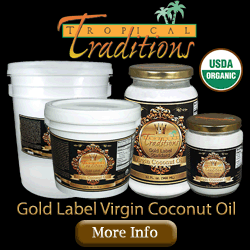 |
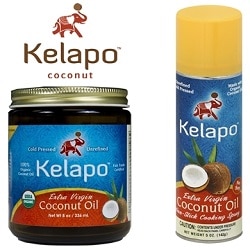 |
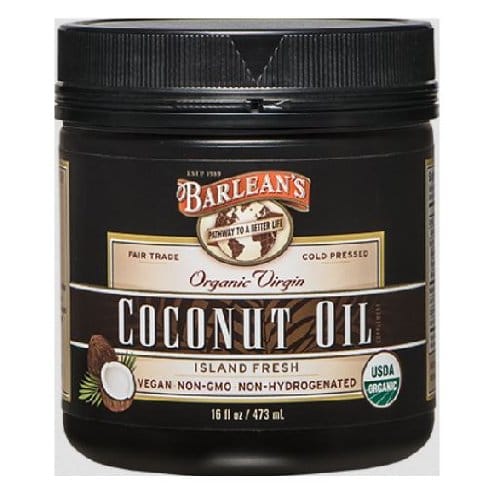 |
If you are looking for more information on Coconut Oil, check out these reader favorites!
- 333 Uses For Coconut Oil
- How To Prevent Or Stop Hair Loss With Coconut Oil
- Coconut Oil For Sun Protection
- How To Remove A Coconut Oil Stain
- Can You Overdose On Coconut Oil
References
- https://water.usgs.gov/edu/watercycletranspiration.html
- Coleman, R.D. and D. Penner. Fatty Acids as Crop Desiccants. Weed Science Society of America, 42:68, 2002
- https://thetruthaboutcancer.com/glyphosate-dangers/
- https://www.ncbi.nlm.nih.gov/pmc/articles/PMC3945755/
- https://www.mdpi.com/1099-4300/15/4/1416
- https://www.sciencedirect.com/science/article/pii/S0892036218300254
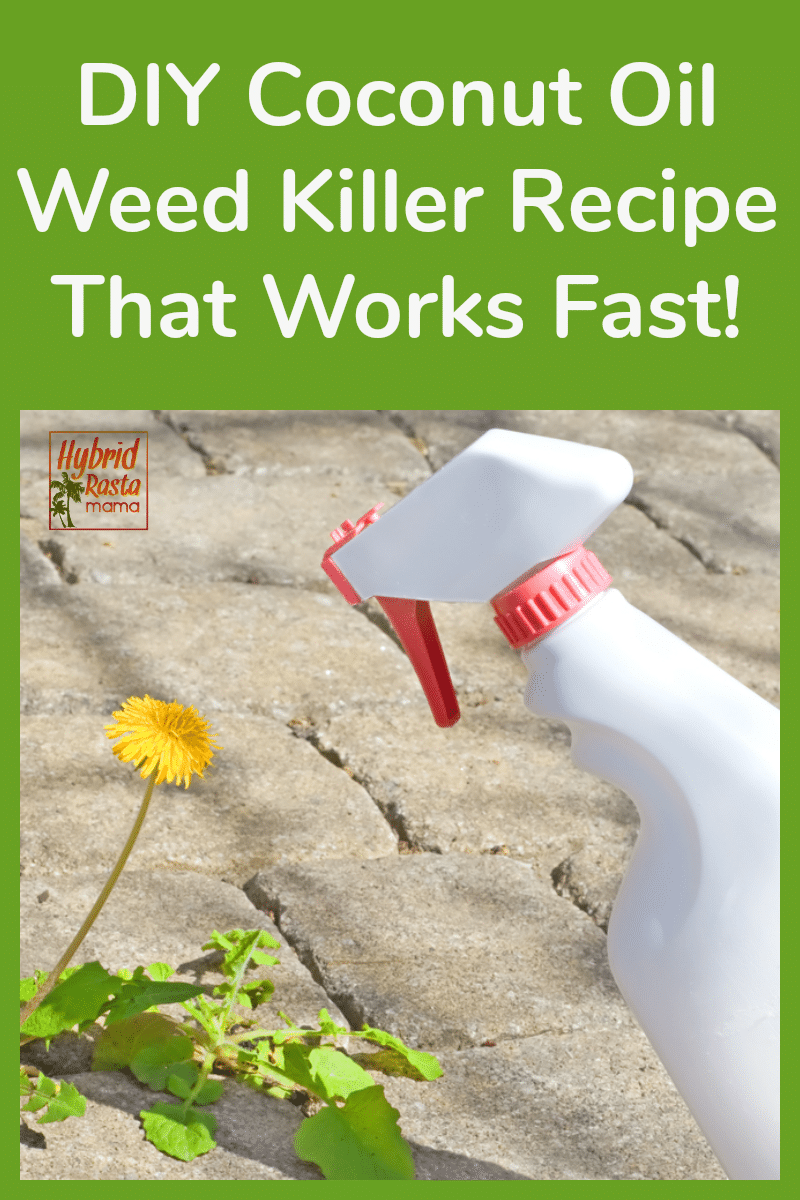




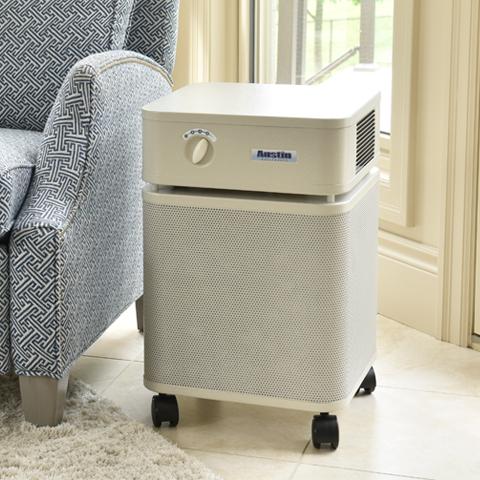




All Natural Katie says
I use coconut oil for cooking and moisturizing, but I never thought of using it for killing weeds! Awesome idea!
valle'e says
I am going to try the mentioned solution because I have Cane Grass that grows longer and tougher with each sunny day and rainy night and day!
I will definately chart the results.
Thanks!
Valle’e
mrvapo says
I did not even know that coconut oil can be used to kill weed, however, I have been using acv for a long time and it does wonders!
Sylvia Crawford says
Will the weed killer, kill crab grass?
Jennifer says
It kills mine!
Beth says
Why is a glass bottle neccessary?
Jennifer says
Hi Beth! You don’t have to use glass. Plastic causes the oil to separate faster but it’s not a biggie. Just shake it up really well. 😉